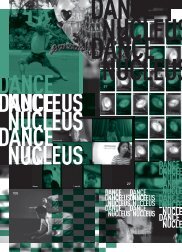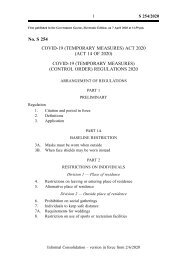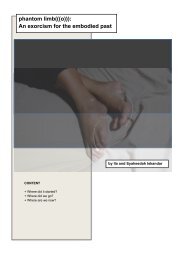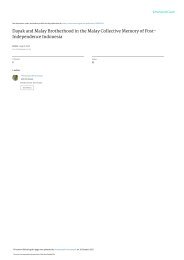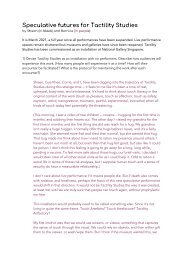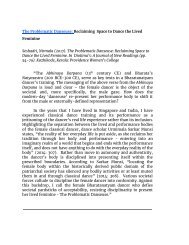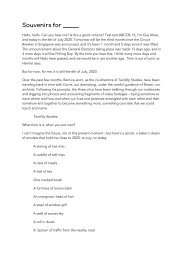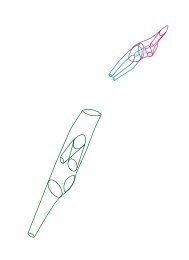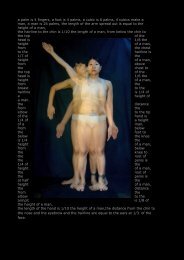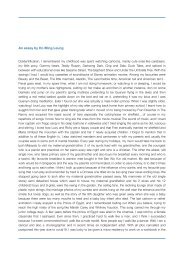FUSE#2
FUSE is a bi-annual publication that documents the projects at Dance Nucleus .
FUSE is a bi-annual publication that documents the projects at Dance Nucleus .
Create successful ePaper yourself
Turn your PDF publications into a flip-book with our unique Google optimized e-Paper software.
SCOPE #3<br />
LA MARIPOSA BORRACHA -The process<br />
by Shanice Stanislaus<br />
What became fun, simple games that would usually induce much laughter would<br />
be flipped to explore an emotional scenario/a situation in an illness setting. The<br />
lightness we had with ‘Le Jeu’ allowed us to safely tap into unpacking the emotional<br />
complexities with discussing and researching illness as a journey allowing us<br />
always the opportunity to return to the laughter that begins the games.<br />
Exploring with the local community<br />
After researching on our own in a group of 4 with individuals who<br />
experience illness and individuals who are caregivers, we decided to<br />
take the investigation to local communities who may better add to<br />
our curiosities.<br />
We worked with the Singapore Association of Mental Health (Youth<br />
Reach) and Caregivers Alliance using Le Jeu as a tool to explore the<br />
journey of illness along, how that translates into the body and the<br />
dissonance of illness in their own lives. It was an amazing time<br />
getting to know these individuals, playing and dancing with them.<br />
Through the games, we uncovered how one can move with great<br />
pleasure despite a physical and mental illness or even the limitations<br />
of having to always stay home to be a caregiver, especially as for<br />
some of these individuals it was their first time dancing.<br />
In terms of exploring the journey of illness the stages of the Kubler Ross model was<br />
often brought up. The Kübler-Ross’ model was based off her work with terminally<br />
ill patients and has received much criticism in the years since. Mainly, because<br />
people studying her model mistakenly believed this is the specific order in which<br />
people grieve and that all people go through all stages. Kübler-Ross now notes that<br />
these stages are not linear and some people may not experience any of them. Yet<br />
and still, others might only undergo two stages rather than all five, one stage, three<br />
stages, etc.<br />
Denial, Anger, Bargaining, Depression and Acceptance were the common<br />
emotional states that were brought up by almost all the participants through the<br />
games played. However, they would also bring up various other emotional states in<br />
their journey of illness that were never explored by Kubler Ross and also rarely<br />
acknowledged in many academic and formal conversations of illness in institutions.<br />
These states of Playfulness, Encouragement, False Hope, Emotional Disconnect<br />
(numbness) and the Celebration. It was only through these games we managed to<br />
uncover the emotional significance of these stages that were nuances to be added<br />
to the current Kubler Ross stages.<br />
These new discoveries added to the work helping us reframe this journey of illness<br />
we would present exploring the dissonances between the phases or the<br />
development of the phases in a real-life scenario when one has to deal with illness<br />
in their own personal lives.<br />
Photo credit: Shanice Stanislaus<br />
95 96




